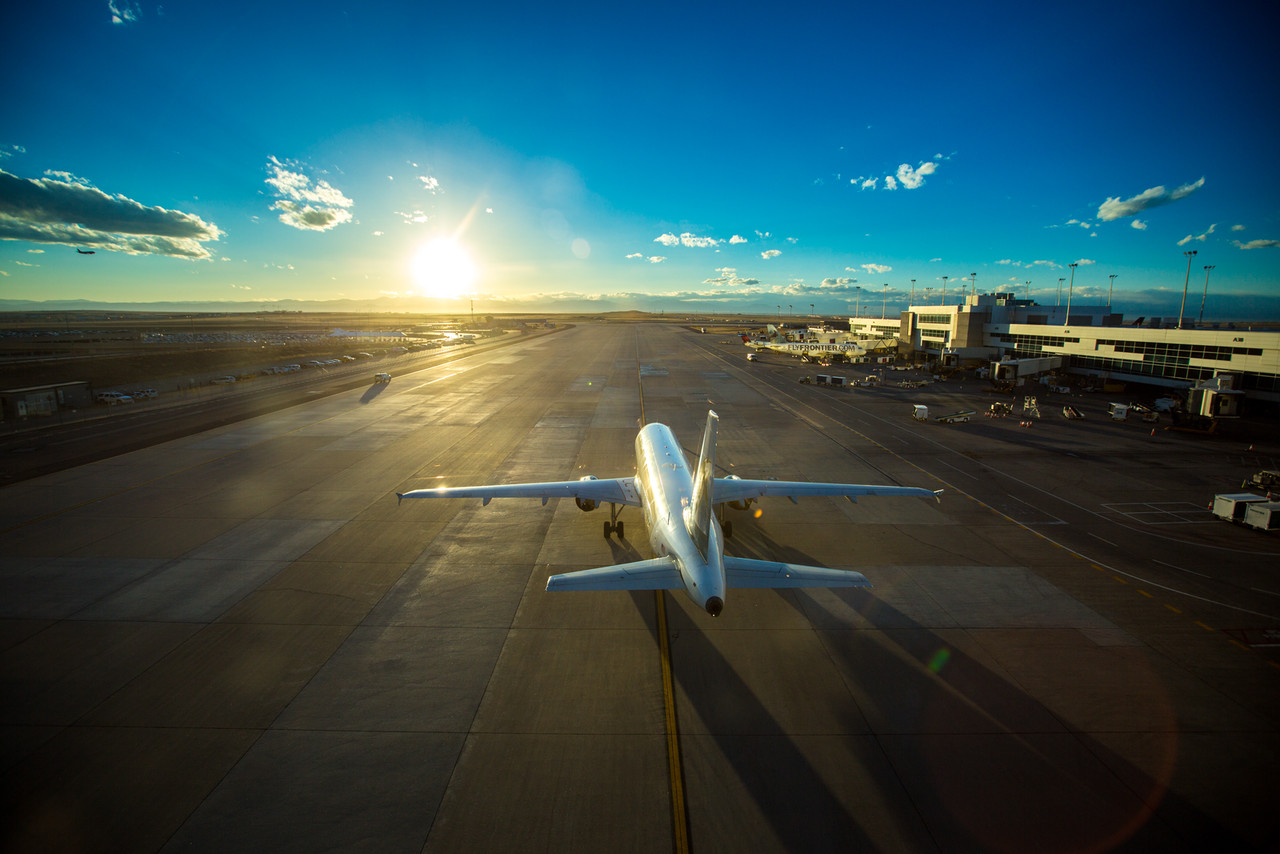Between 2018 and 2022, significant expansion in the worldwide airport security industry was observed. The strategies and tactics employed to safeguard travelers, employees, aircraft, and airport property against unintentional or purposeful injury as well as crime, terrorism, and other dangers are referred to as airport security.
The global airport security market is estimated to reach US$ 13,722.4 million in 2023. As per the report, sales are forecast to increase at a robust 5% CAGR, with the market valuation reaching US$ 22,352.3 million by 2033.
Total sales in the global travel & tourism sector market represent ~4-9% of the global airport service.
2018 to 2022 Global Airport Security Sector Market Outlook Compared to 2023 to 2033 Forecast
Between 2018 and 2022, significant expansion in the worldwide airport security industry was observed. The strategies and tactics employed to safeguard travelers, employees, aircraft, and airport property against unintentional or purposeful injury as well as crime, terrorism, and other dangers are referred to as airport security.
To protect civil aviation against acts of unauthorized interference, aviation security consists of a mix of policies, procedures, and material and human resources. Acts of terrorism, sabotage, threats against people or property, spreading false alarms, bombing, etc. are examples of unlawful interference.
What are the Driving Factors for the Growth of the Industry?
The macroeconomic expansion, the emergence of the middle class in developing nations, and the continuous expansion of e-commerce are likely to drive development in the airport service sector during the next years. Additionally, the need for aviation security providers is expected to persist due to rising geopolitical and terrorist concerns.
Airports and airlines face increasingly complicated difficulties. Aircraft occasionally land and take off every minute or so. Maximum effectiveness is necessary. Passengers and employees are now subject to more thorough security checks.
Safety remains the foremost concern, and the phrase “safety first” is more than simply a catchphrase. However, the conflict over passenger safety has changed. While many people may still be primarily concerned about turbulence in the air or a technological malfunction, today’s greatest potential threat comes from human behavior, which is what is driving the business.
How Smart Security is Boosting the Airport Security Industry?
IATA and Airports Council International (ACI) have joined forces to create Smart Security, a programmer that enhances security results in the face of constantly changing threats while also enhancing operational effectiveness, passenger and cabin experiences, and luggage inspection procedure. It accomplishes this through a combination of novel techniques and technology, including concepts for risk-based security. Several of Smart Security’s technological and process innovations are gaining traction; lane automation, for instance, and centralized picture systems for processing and checkpoints; Smart Security is leading the way in advancing security for the screening of passengers and luggage. The objectives of smart security are to boost security and enhance the passenger experience, and efficiency.
What are Some Potential Market Barriers preventing the Expansion of the Sector?
Airports are under pressure to contribute to the fight against the evolving threats to aviation. Constantly changing detection techniques are being regulated more and more, posing various new difficulties for the airport security sector.
Paying the bills is one of the biggest obstacles. The modifications entail a considerable financial outlay, with the equipment’s purchase and installation accounting for the majority of the expense. Depending on the design, one security lane and the accompanying equipment might cost up to US$1.32 million when implemented.
The 3D X-ray machines weigh a lot more than the standard X-ray equipment airports currently employ. It may be necessary for some airports to reinforce floors and, in some cases, build new structures to accommodate them, which would be an extremely costly endeavor.
Country-wise Insights
Demand for Airport Security is expected to boost due to the Drone Incident
Europe holds the largest share of 35% of the airport security sector. According to estimates, the United Kingdom airport security market is expected to expand as a result of rising infrastructure modernization spending. Administrations are implementing cutting-edge technologies like automated lanes, x-rays, and integrated networks to lessen the total inconvenience throughout the checking and screening process. They are concentrating on enhancing the facility’s capacity to handle numerous passengers simultaneously and security measures. Market giants are collaborating with airports to improve their standing in the sector.
Gatwick Airport Drone Incident: Event – Following reports of drone sightings at the airport border and close to the runway, Gatwick Airport near London, England, had hundreds of flights canceled between December 19 and December 21, 2018. 140,000 people are expected to be impacted, and 1000 flights are expected to be diverted or canceled. Brief Report – The second-busiest airport in Britain was closed for 36 hours. Due to repeated reports of drone sightings just as the runway was about to reopen, police believed a drone operator had purposefully interfered with flights. Several other airports across the world experienced short closures, which affected Heathrow Airport. The military was called in on December 20 to assist in putting an end to the unusual scenario. Due to ongoing reports of sightings, the airport announced at 23:30 on the same day that the runway would stay closed and all aircraft would be canceled for the remainder of the evening. At roughly 6:00 a.m., the 21 December Airport reopened with a constrained capacity. At 9:30, Chris Woodroofe, the chief operating officer of Gatwick Airport, stated that the runway conditions were “near normal” and that by the end of the day, everything will be “back to normal.”
Owing to the relocation of crews and aircraft, some planned flights on December 22 had delays. The runway was once again closed at 17:30 due to a possible drone sighting, and it was reopened at 18:23. On January 3, 2019, the RAF left the airport after Gatwick invested £5 million in an attack-prevention system. Authorities in Europe have enacted & developed guidelines on airport security to prevent such assaults & mishaps.
The United States has launched Several Initiatives to boost the Airport Security Market
The growing significance of speeding up entrance & exit procedures at airport security checkpoints is predicted to drive growth in the United States airport security market through 2033. Airport administrations are implementing smart technologies, including biometrics & digital panels, to improve the entire traveler experience. Following the COVID-19 lockout, the adoption of such solutions grew in several areas as the airport administration focused on implementing contactless access control systems to minimize any direct human contact. Governmental organizations are also aiding in the global adoption of technology.
Government rules about aviation safety have a positive impact on the uptake of access control, screening, and monitoring equipment. For instance, all aircraft operations in the United States are governed by the Federal Aviation Regulation (FAR). There are various aviation security programs established under FAR 1542. This legislation promotes the construction and use of safety tools like the Security Identification Display Area (SIDA) to thwart criminal activity and terrorism. Similarly to this, IATA resolution 753 from June 2018 required member airlines to verify bags before loading planes. These regulations urge the industry to implement strong safety measures for better management of people and cargo. These elements are anticipated to have a positive impact on the expansion of the airport security industry.
Category-wise Insights
Airport Cyberattacks are Predicted to Increase, driving the Market’s Development
In the modern information era, businesses and government agencies heavily rely on networked computer systems to handle a variety of public services, such as electricity, transportation, and water. While the public benefits from the greater connectedness in many operational ways, it also makes them more susceptible to cyberattacks such as Corporate Security Breaches, Spear Phishing, and Social Media Fraud. One of the important infrastructure systems that are susceptible to both physical and cyberattacks is the aviation industry, especially in light of the growing prevalence of Bring Your Own Device (BYOD) policies at airports. It is acknowledged that there are now no cyber security standards in place for airports in the United States because the previous standards have mostly focused on aircraft Control Systems (CS).
Key Profiled Companies
Honeywell International Inc., Thales Group, FLIR Systems, IBM Corporation, Axis Communications AB, C.E.I.A. S.p.A., FLIR Systems, Hitachi Ltd., Leidos, Inc., Westminster Group PLC,, Collins Aerospace (Raytheon Technologies), Biosensor Applications AB, OSI Systems, Siemens AG, Bosch Sicherheits systeme GmbH, Auto Clear LLC, Smith’s Detection Group Ltd, and others.
New Developments in the Competitive Landscape
Thales to launch a new airport security scanner. Thales has developed a new airport security scanner designed to upgrade the airport experience for both passengers and airline companies. Helix’s view, based on Thales’ expertise in Artificial Intelligence (AI) and Cybersecurity, is a stationary, compact, and lightweight EDS CB C3-compliant scanner (the next standard applied to the certification for EDS CB) that combines X-ray nanotechnology-based electronic scanning and 3D imaging reconstruction.
Heathrow Airport signed a deal with Aveillant, which is a Thales Group subsidiary, in January 2020. Under this contract, the company is projected to deliver an anti-drone product to prevent flight disturbance from rogue drones. This system is a part of anti-drone efforts handled by systems integrator operational solutions.
The Ministry of Transportation and Telecommunications in Bahrain had a deal with SITA and Thales Group in June 2017. The agreement is focused on offering operations and security management systems for Bahrain International Airport.
These insights are based on a report on the Airport Security Market by Future Market Insights.
Vicky is the co-founder of TravelDailyNews Media Network where she is the Editor-in Chief. She is also responsible for the daily operation and the financial policy. She holds a Bachelor's degree in Tourism Business Administration from the Technical University of Athens and a Master in Business Administration (MBA) from the University of Wales.
She has many years of both academic and industrial experience within the travel industry. She has written/edited numerous articles in various tourism magazines.
































































































































































































































